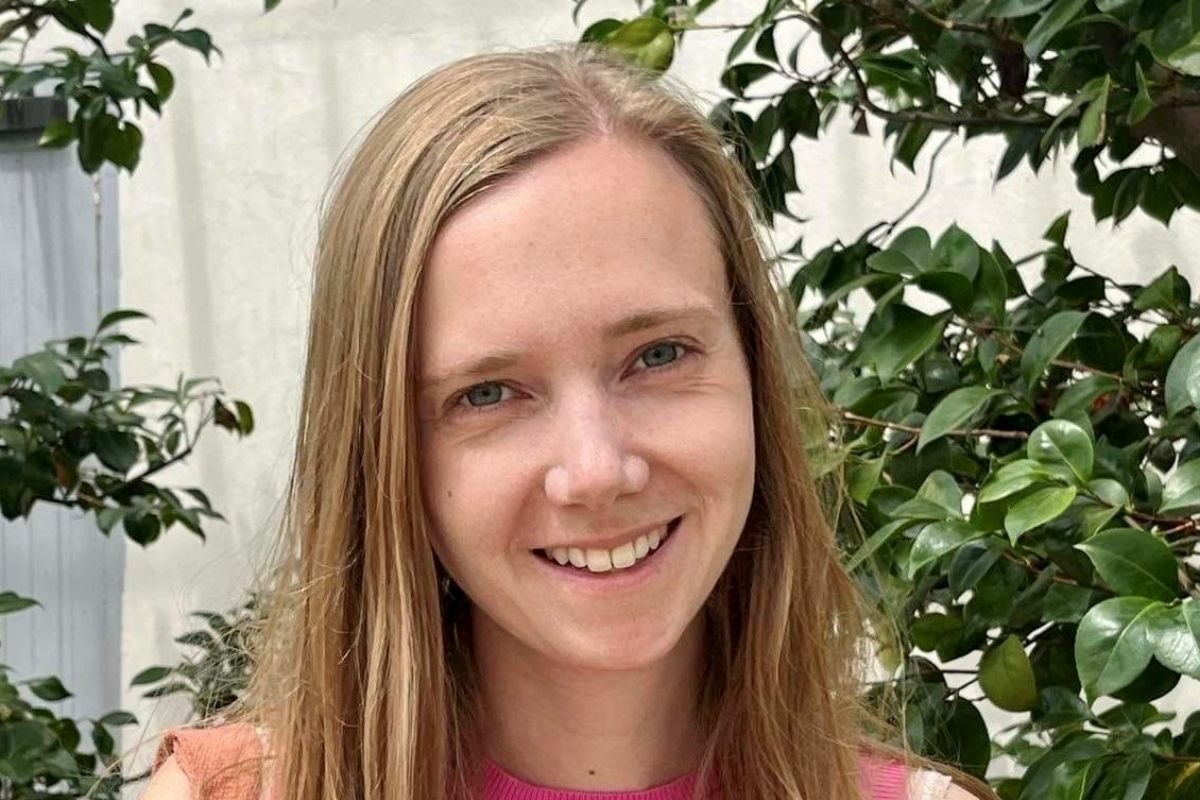Brighton Alumna of the Year award for dyspraxia campaigner

University of Brighton has recognised Jessica Starns in a graduation award ceremony this week as its 2022 Alumna of the Year for her life-changing work supporting young people with dyspraxia.
Jess studied at the University of Brighton twice – completing a foundation degree in photography in 2010 and a masters in Inclusive Arts Practice in 2019, which included her creation of a Neurodiversity Museum to challenge ideas and prejudices around disability. Jess has channelled her efforts after university into helping provide support to dyspraxic young people so that they can achieve the future they hope for.
Too often, individuals with dyspraxia – a condition that affects motor skills and can cause problems with language and perception – experience barriers to accessing education and obstacles in the workplace. Breaking down those barriers is Jess’s passion and motivation.
Inspired by her own experience of living with dyspraxia, in 2013 Jess founded Dyspraxic Me – a volunteer-led charity which offers dyspraxic young people the chance to take part in practical workshops and social events that help them develop useful skills for adulthood.
As well as supporting young people, Jess has also helped raise awareness about the condition itself, which is still often misunderstood, with those living with it often unfairly receiving negative labels. She has been running Dyspraxic Me voluntarily, alongside her role at the British Museum as Programme Manager of the Wolfson Project, working to make the museum more welcoming to autistic and learning-disabled visitors.
In 2015, Dyspraxic Me was recognised with a Santander Award for the most enterprising community project, through the University’s entrepreneurship support service, Beepurple. Jess’s work has been recognised by Downing Street with a Points of Light Award and she was also included on the Shaw Trust Disability Power 100 list in 2018 as one of Britain’s most influential people with a disability.
Her work and tireless campaigning are even more important in today’s political climate. Plans requiring students to pass both Maths and English GSCEs to qualify for a student loan will disproportionately impact dyspraxic individuals and could prevent them from being able to access a university education.
In her award acceptance speech, Jessica Starns said:
“I am neurodivergent and I founded Dyspraxic Me through my lived experience. Dyspraxia is still not currently as well researched or talked about compared to other neurodivergence.
“I faced discrimination in the workplace during my first job and realised that there wasn’t much support after you leave formal education – support in guiding you into adulthood, and how the focus changes from barriers to passing grades in education to more of a focus in finding paid employment, living independently, and building relationships.
“You may have heard in the news recently that there have been discussions around new plans for student loans requiring students to pass both Maths and English GCSEs to qualify for a student loan. Many neurodivergent people will not be able to access student loans due to not having passed their maths and English at level 4 or above. I have an MA but I haven’t yet passed my GCSE maths…
“Many courses in the arts are also being cut for courses that have a quicker impact into higher paid jobs, and this will also have an impact on creative courses that many neurodivergent people succeed in.”
- Dyspraxic Me on Twitter: @dyspraxicme,
- Dyspraxic Me on Instagram @dyspraxic_me











Responses